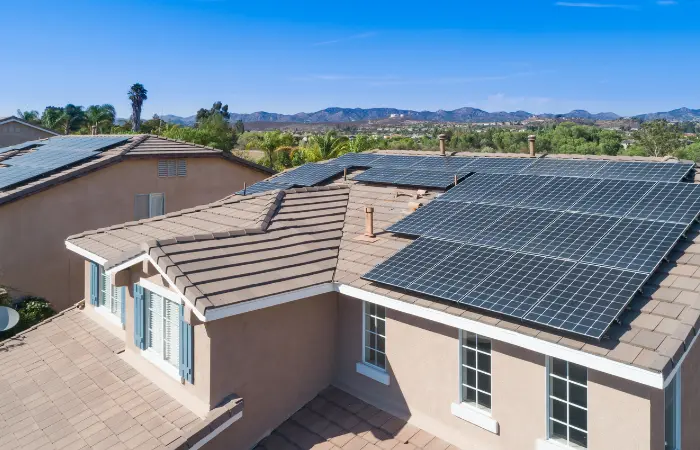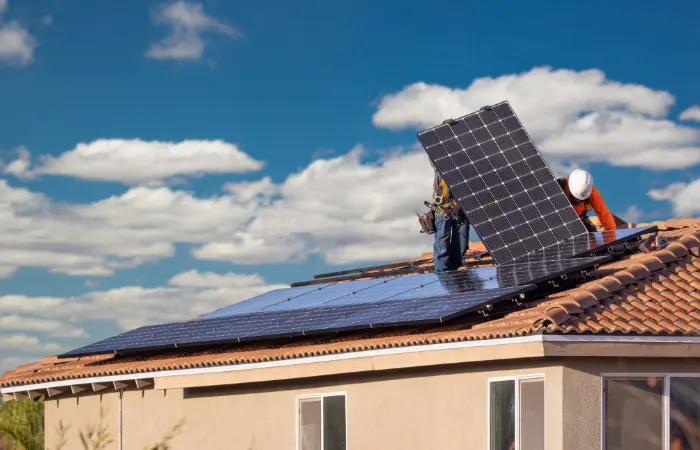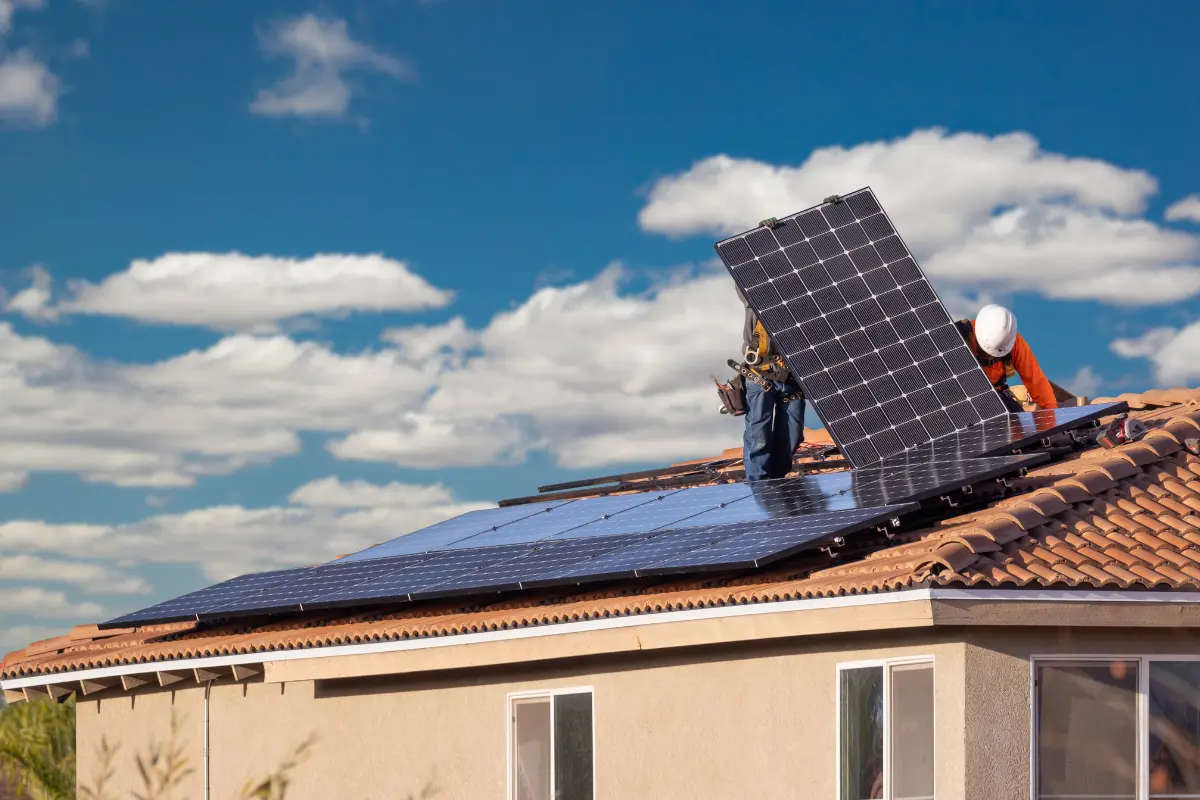The Ultimate Guide to Solar Power Installation: Choosing the Best Solar Panel System in Sydney
Introduction: In the vibrant city of Sydney, harnessing solar power is on the rise. Making the right choice in selecting a solar panel system is pivotal for energy efficiency. This article serves as a vital guide, exploring key factors like energy needs, budget considerations, and installation intricacies, empowering readers to make informed and sustainable decisions.
The increasing popularity of solar panel systems
The popularity of solar panel systems is soaring globally, driven by a collective environmental consciousness and a quest for sustainable energy solutions. In Sydney, this trend is particularly pronounced, as more individuals and businesses embrace solar power to reduce their carbon footprint and enjoy the long-term benefits of clean, renewable energy.
Importance of choosing the right solar panel system for maximum efficiency
Selecting the optimal solar panel system is pivotal for achieving maximum efficiency and energy output. The right choice ensures that the system aligns seamlessly with specific energy needs, environmental conditions, and budget constraints, guaranteeing long-term sustainability and substantial cost savings while minimizing the environmental impact.
Purpose of the article: Guiding readers in selecting the best solar panel system in Sydney
This article serves as a comprehensive guide, aiding readers in the intricate process of choosing the most suitable solar panel system in Sydney. By providing insights into energy needs, budget considerations, and system components, it empowers individuals to make informed decisions, ensuring the selection of an efficient and sustainable solar solution.

Understanding Solar Panel Basics
Understanding solar panel basics is fundamental for informed decision-making. This section delves into the workings of solar panels, elucidates the different types like monocrystalline and polycrystalline, and explores factors influencing efficiency. Readers will gain a solid foundation to make informed choices in selecting the most suitable solar panel system for their needs.
- Explanation of how solar panels work: Solar panels harness sunlight through photovoltaic cells, converting sunlight into electricity. When photons from sunlight strike the cells, they release electrons, generating a direct current (DC). An inverter then transforms DC into alternating current (AC), ready for use in homes or businesses. This fundamental process forms the core of solar panel functionality.
- Different types of solar panels (monocrystalline, polycrystalline, thin-film): Solar panels come in various types, each with distinct characteristics. Monocrystalline panels, known for efficiency, use single-crystal silicon. Polycrystalline panels, cost-effective and slightly less efficient, employ multiple crystals. Thin-film panels, flexible and lightweight, consist of layers applied onto a substrate, offering versatility in installation and application.
- Factors affecting solar panel efficiency and performance: Solar panel efficiency and performance are influenced by multiple factors. Sunlight intensity, duration, and angle significantly impact output. Panel orientation, shading, and temperature affect efficiency. The quality of components, like cells and inverters, also plays a crucial role. Understanding and optimizing these factors ensures maximum efficiency and prolonged solar panel performance.

Assessing Energy Needs
Accurate assessment of energy needs is essential for effective solar panel system sizing. Conducting a thorough energy audit, estimating daily and monthly consumption, and considering future growth or changes are key steps. This process ensures the selection of a solar system that aligns precisely with individual energy requirements, maximizing its effectiveness.
- Conducting a thorough energy audit: Conducting a thorough energy audit is crucial for determining precise energy requirements. This involves analyzing historical energy consumption, identifying peak usage periods, and assessing appliance efficiency. Such meticulous examination ensures an accurate understanding of energy needs, laying the foundation for the appropriate sizing and optimization of a solar panel system.
- Estimating daily and monthly energy consumption: Estimating daily and monthly energy consumption involves assessing the power needs of various appliances and activities. By calculating the average energy usage over time, individuals can determine the size of the solar panel system required. This meticulous process ensures a tailored solution that efficiently meets specific energy demands.
- Determining the size of the solar panel system required: Determining the size of the solar panel system involves integrating data from energy audits and consumption estimates. Factors such as location, sunlight hours, and desired energy independence guide the calculation. This careful consideration ensures selecting a system with optimal capacity, meeting energy needs and promoting sustainable solar utilization.
Budget Considerations
Budget considerations are pivotal when adopting solar panels, encompassing initial costs, installation expenses, and long-term savings. This section explores the financial aspects of solar investment, outlining potential returns on investment, available incentives, and the overall cost-effectiveness of choosing a solar panel system tailored to individual budget constraints.
- Overview of the initial costs (purchase and installation): An overview of initial costs includes the purchase and installation expenses associated with solar panels. This section details the upfront investment required, covering the cost of panels, inverters, mounting systems, and labor. Understanding these components is crucial for budget planning and assessing the feasibility of solar adoption.
- Long-term cost savings and return on investment: Delving into long-term cost savings and return on investment, this section explores the financial benefits of solar panels over time. By examining reduced energy bills, potential government incentives, and the lifespan of the system, readers gain insight into the sustained economic advantages and overall return on their solar investment.
- Available financial incentives and rebates for solar panel installation: Exploring available financial incentives and rebates, this section highlights government programs and financial perks encouraging solar panel adoption. Readers gain insights into tax credits, rebates, and other financial incentives that enhance the affordability of solar installation, promoting environmentally conscious choices and stimulating renewable energy initiatives.

Solar Panel System Components
Solar panel system components encompass diverse elements crucial for optimal performance. This section explores the types and qualities of solar panels, the importance and types of inverters, robust mounting and racking systems, and the role of monitoring systems. Understanding these components ensures informed choices for a reliable and efficient solar setup.
- Solar panels: types, brands, and quality: This section delves into solar panels, covering various types like monocrystalline and polycrystalline, and highlighting reputable brands known for quality. Readers gain insights into the attributes defining panel efficiency and durability, aiding them in making informed choices when selecting the most suitable solar panels for their specific needs.
- Inverters: importance, types (string, micro), and selection criteria: Inverters play a vital role in solar systems, converting DC electricity to AC for home use. This section explores their significance, outlines different types such as string and micro inverters, and details key selection criteria. Understanding these factors ensures optimal inverter choices, enhancing overall system efficiency and performance.
- Mounting and racking systems: considerations for installation and durability: Mounting and racking systems are pivotal components for solar panel installations, and this section details considerations for their installation and durability. Exploring factors such as material quality, design, and adaptability to various roof types ensures a secure and lasting foundation for solar panels, optimizing their efficiency and longevity.
- Monitoring systems: tracking energy production and system performance: Monitoring systems are integral for assessing solar panel performance. This section explores the importance of tracking energy production and system performance. Discussing the types and capabilities of monitoring systems empowers readers to choose solutions that provide real-time insights, ensuring efficient operation and timely identification of any issues in their solar setup.

Reputation and Reviews
This section emphasizes the significance of reputation and reviews when choosing solar panel components and installers. Readers learn to research and compare manufacturers and service providers, gaining insights from customer testimonials. Evaluating certifications and warranties enhances confidence in selecting reputable entities, fostering trust in the overall solar panel system.
- Researching and comparing reputable solar panel manufacturers and installers: In this section, readers discover the importance of researching and comparing reputable solar panel manufacturers and installers. The focus is on evaluating company backgrounds, product quality, and customer satisfaction to make informed choices. This scrutiny ensures the selection of trustworthy entities for a reliable and efficient solar panel system.
- Reading customer reviews and testimonials: Examining customer reviews and testimonials is crucial when selecting a solar panel system. This section highlights the significance of firsthand experiences, providing insights into the performance and reliability of different systems and installers. Readers gain valuable perspectives to make informed decisions and ensure satisfaction with their chosen solar solution.
- Checking certifications and warranties offered by the companies: Ensuring the reliability of solar panel systems involves checking certifications and warranties. This section details the significance of industry certifications and robust warranties. Readers learn to scrutinize these aspects, gaining confidence in the quality and longevity of their chosen solar components, and ensuring peace of mind throughout the system’s lifespan.
Solar Panel Installation
This section explores the critical aspects of solar panel installation. Emphasizing the importance of professional installation, readers learn about certified and experienced installers, the installation process intricacies, and timelines. Understanding these factors is key to ensuring a seamless and efficient integration of solar panels into the chosen environment.
A. Importance of professional installation:
Professional installation ensures the proper setup of solar panels, optimizing performance and longevity. Expertise reduces the risk of errors, ensuring safety, compliance, and efficient energy production.
B. Choosing a Certified and Experienced Installer:
Selecting a certified and experienced installer is vital. Certification demonstrates competence, and experience ensures familiarity with diverse setups, addressing challenges effectively for a reliable and efficient solar system installation.
C. Discussing the Installation Process and Timeline:
Open communication about the installation process and timeline is essential. This section covers what to expect, from initial assessments to completion, providing transparency. Understanding the timeline ensures alignment with expectations and minimizes disruptions during the installation process.

Maintenance and Durability
Maintenance and durability are key considerations for a lasting solar panel system. This section emphasizes proactive maintenance tips, ensuring optimal performance. Understanding warranty terms is crucial for long-term reliability. Robust durability against weather conditions is explored, promoting a resilient solar setup that withstands environmental challenges for sustained energy production.
A. Tips for Maintaining Optimal Solar Panel Performance:
Regular cleaning, monitoring for shading issues, and routine inspections are essential maintenance tips to maximize solar panel efficiency and overall system performance.
B. Understanding Warranty Terms and Conditions:
Clear comprehension of warranty terms, including coverage, duration, and conditions, is crucial. This section guides readers on navigating warranty details to ensure comprehensive protection for their solar investment.
C. Ensuring Durability in Various Weather Conditions:
Exploring durability in different weather conditions is vital. This includes selecting robust materials and designs to withstand elements like rain, hail, and extreme temperatures, ensuring the longevity of the solar panel system.
Conclusion
In conclusion, this article serves as a comprehensive guide for choosing the best solar panel system in Sydney. By emphasizing factors such as energy needs, budget considerations, and reputable components, readers are empowered to make informed decisions. The importance of professional installation, ongoing maintenance, and durability considerations ensure a sustainable and efficient solar solution.
A. Summarizing Key Points in Choosing the Best Solar Panel System in Sydney:
Recapitulating energy needs, budget considerations, and reputable components ensures a comprehensive understanding, aiding readers in selecting an optimal solar panel system for their specific requirements in Sydney.
B. Encouraging Readers to Make an Informed Decision for a Sustainable and Efficient Energy Solution:
This conclusion inspires readers to prioritize sustainability and efficiency. By making informed decisions aligned with their energy needs, budget, and reliable components, individuals contribute to a sustainable future through efficient solar solutions.

FAQs for Solar Power Installers in Sydney:
The size of the solar panel system you need depends on your energy consumption. ADS SOLAR offers personalized consultations to determine the ideal size for your specific requirements.
The installation timeline can vary based on the complexity of the project and the size of the system. On average, ADS SOLAR completes installations within a few days.
Typically, grid-tied solar power systems are designed to shut down during a blackout to prevent back-feeding and ensure the safety of workers attempting to fix the power grid. However, there are backup options such as batteries that can be installed to provide power during outages. ADS SOLAR can advise you on the best solution for your needs.
Regular cleaning and inspections are recommended to ensure optimal performance. ADS SOLAR offers maintenance services to keep your solar panel system operating efficiently.
Yes, solar panels can be installed on flat roofs with the appropriate mounting system. ADS SOLAR provides customized solutions for all types of roofs.

